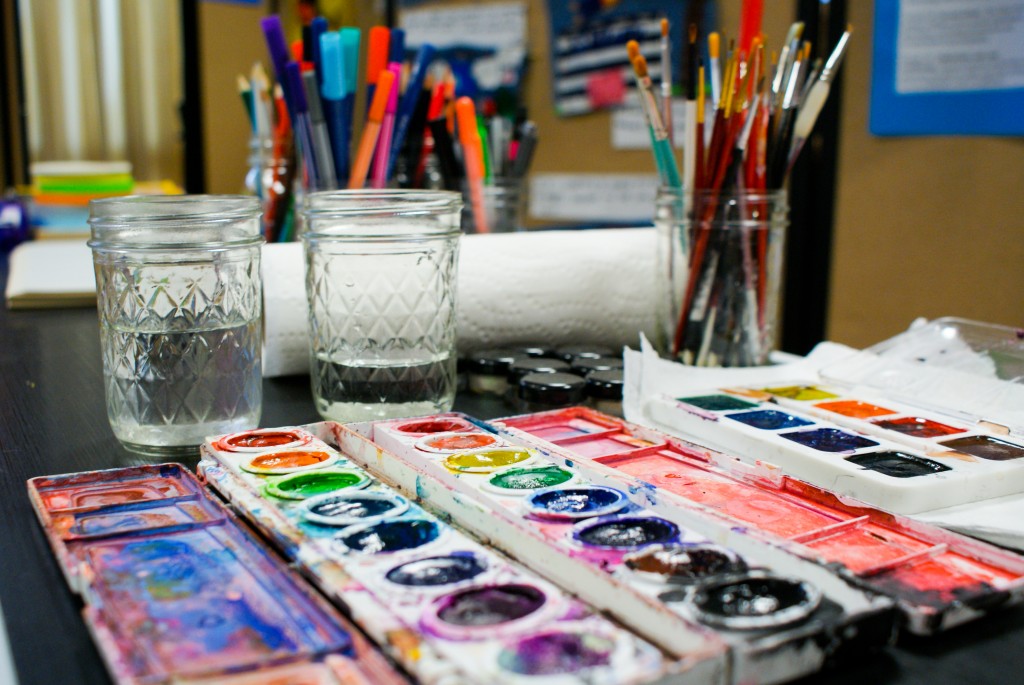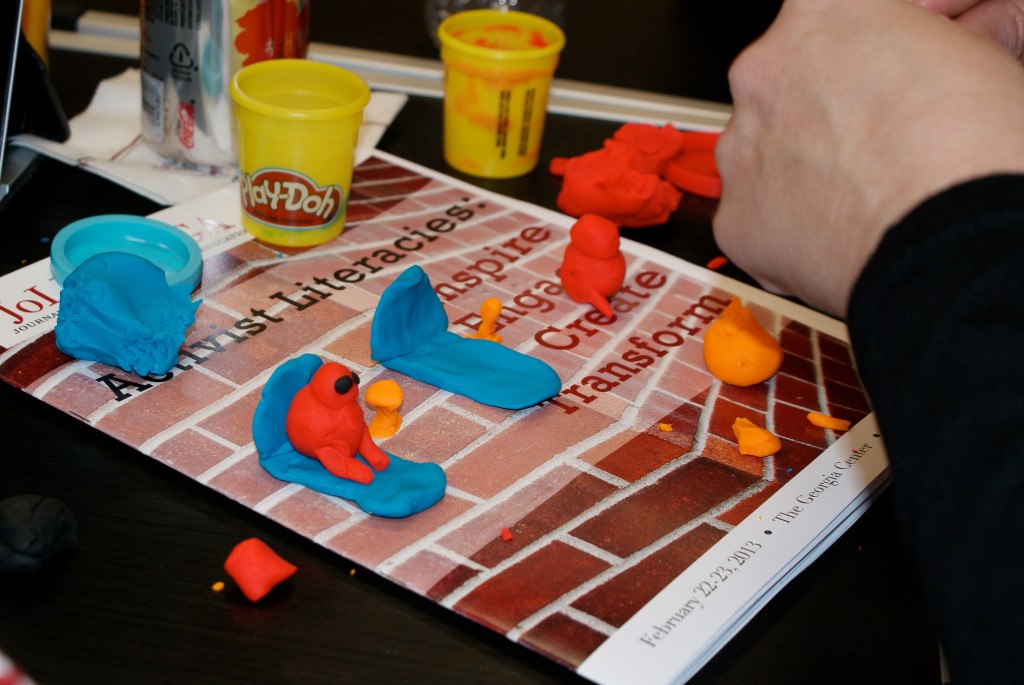
Participants used a variety of artistic mediums during Hope Hilton’s session “Topophilia and the Literacy of Space.” All photographs taken by Steven Landry unless otherwise noted.
Images, Energy, and Action
by Steven Landry
As a photographer, I get to enjoy the act of capturing moments in time for later analysis. Like a researcher, I reflect upon the moment and make meaning through a critical view. The JoLLE Conference, as an experience, supported an idea I have about the limitations of photography: a static image belies the energy and action behind the movbiz of time captured.
Moving from room to room and watching multiple literacies in action – from traditional print-centric presentations, to more media-centric video games, and even kinesthetic tableaus – I saw varied activist literacies at play. On one level, I envisioned Talia Pura’s interactive drama scenes employed in my secondary classrooms while exploring texts like Macbeth. Could Shakespeare’s characters be given the opportunity to slow down, digested, and even experienced as alive? On another level, the genuine and vested engagement from participants and facilitators was atmospheric and inspiring.
Glynda Hull’s experience with digital literacy – specifically showcasing student-made video and audio creations reflecting life under pressure – could serve as mentor texts for the adolescents I teach. Employing this format would give voice, agency, and – through social networking – an audience for my learning community.
In the Create Session, “Speed Dating with iPads: Creating Discipline-Specific Films in 90 Minutes,” Jenifer Jasinski Schneider, Aimee Frier, Rebecca Powell, and Margaret Krause (all from the University of South Florida), engaged participants in a mini multi-media production process to create stop-motion animation films. Schneider’s cork would be easily utilized in a block schedule Language Arts classroom regardless of grade levels and perceived student abilities, and could help students better understand the composing process through multiple modes.
JoLLE enabled me to take part in an ongoing dialogue of how to make meaning through diverse formats: paintings, hand-drawn pictures, music, digital texts, movbiz video, and still images. I still reel from the potential applications for the ways of thinking, synthesizing, and creating represented by presenters. From my own pictures, I see the JoLLE participants’ creations translated to those in my classrooms. Yet the moments I snapped cannot begin to capture the inspiring experiences or the positive energy I felt from students, teachers, professors, and fellow artists at the conference. While looking at the still images I shot, I can easily visualize the dynamic impact my episode at JoLLE will have upon my future lesson plans and research.
Steven Landry teaches high school in Athens, GA. He will be entering the doctoral program in Language & Literacy Education at The University of Georgia in the fall of 2013.
